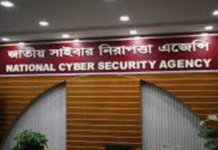Trump’s Presidency Brings Us Closer to Midnight on the Doomsday Clock

The legendary Bulletin of the Atomic Scientists (BAS), which tracks issues related to technology and global security, has issued a terrifying warning: We are less than two minutes to midnight on the Doomsday clock. It’s very bad news, representing “the most dangerous situation that humanity has ever faced.”
What makes this moment so perilous? The scientists’ statement includes warnings over the cyber-weaponization of information, the spread of artificial intelligence (AI) in making military decisions, the destruction of treaties meant to limit the spread of nuclear weapons, the abandonment of global agreements to limit climate chaos, the spread of genetic engineering and synthetic biology technologies, and more. It does not account for the escalated likelihood of atomic reactor disasters, but based on at least one BAS publication, it should.
Since 1947, this prestigious band of elite scientists and global thinkers has been putting out a “clock” meant to time the peril of a global apocalypse. First issued at the dawn of the Cold War, it has mostly focused on the dangers of atomic warfare. Its countdown to Armageddon has been set as far away as 17 minutes from midnight, a hypothetical time of human extinction. That relatively optimistic assessment came in 1991, with the fall of the Soviet Union and the definitive end of the Cold War.
In 2018, the BAS set it at two minutes, the closest to catastrophe it had ever been. They repeated that estimate in 2019. But this year’s announcement has taken us inside the two-minute warning with a hair-raising litany of likely lethal catastrophes set to occur within 100 theoretical seconds.
Donald Trump is mentioned only once by name, in conjunction with his decision to trash the Paris Accords on climate change and greenhouse gas emissions. The scientists urge “whoever wins the 2020 election” to reinstate the U.S. commitment limiting carbon and other climate-destroying emissions. The BAS also cites Brazilian dictator Jair Bolsonaro for his decision to allow the destruction of the Amazon, with huge impacts on climate.
The BAS strives to maintain a non-partisan image. But Trump’s presence in the White House clearly hangs over any assessment of humankind’s survivability. The specter of his finger on the nuclear, ecological and financial buttons for the next four years hangs over humankind like a pall but goes otherwise unmentioned in this Doomsday assessment.
Also unmentioned is the question of more than 450 atomic power reactors worldwide. A small but vocal outlier coterie has argued that nuclear energy combats global warming by emitting less carbon that coal burners. But the Bulletin recently enshrined a major assessment by the esteemed Dr. Robert Jay Lifton, warning that commercial reactors pose a serious threat to human survival on this planet.
Published in August 2019, “The false promise of nuclear power in an age of climate change” argues that the 450 atomic reactors now deteriorating worldwide pose an existential threat to our survival. Writing with Professor Naomi Oreskes, Lifton warns that atomic energy “is expensive and poses grave dangers to our physical and psychological well-being.” Citing costs of nuclear juice at $100 per megawatt-hour versus $50 for solar and $30-40 for onshore wind, the authors say that the industry suffers from a “negative learning curve,” driving nuke costs constantly higher while those for renewables head consistently down.
Citing the unsolved problem of radioactive waste management, the BAS article warns of the ongoing impacts of major disasters like Fukushima and Chernobyl (and potentially more to come), whose fallout kills humans and does untold damage to the global ecology. Lipton and Oreskes say we need to free ourselves “from the false hope that a technology designed for ultimate destruction” can lead to our salvation. They favor making “renewable energies integral to the American way of life.”
In addition to nuclear and climate issues, the 2020 Doomsday assessment emphasizes some relatively new concerns. “In the last year,” it says, “many governments used cyber-enabled disinformation campaigns to sow distrust in institutions and among nations, undermining domestic and international efforts to foster peace and protect the planet.”
By attacking both science and the fabric of international peace accords, some global leaders have created “a situation that will, if unaddressed, lead to catastrophe, sooner rather than later.”
That situation includes AI and hypersonic warfare, both escalating “at a frenzied pace.” Now used in ultra-fast attacks, AI is dangerously vulnerable to “hacking and manipulation” while making “kill decisions without human supervision.” In nuclear command and control systems, the BAS warns, research and experience have demonstrated the vulnerability of these systems to “hacking and manipulation.”
This is an absolutely terrifying brew. The spread of disinformation, the contempt for science and expert opinion, the undermining of global agreements on arms control, and climate change are all deadly. Add in the new world of AI and hyper-sonic warfare, then pile on autocrats like Trump and Bolsonaro, and finish with the certainty of more disasters from 450 crumbling, obsolete atomic reactors.
All in all, it’s small wonder the Bulletin has taken us past the two-minute warning. It will clearly take every ounce of our activist strength to save our species from the final whistle.









